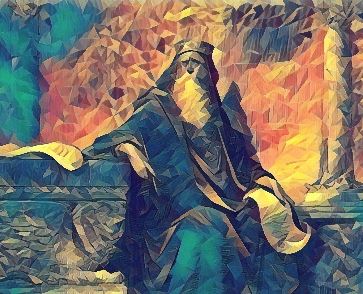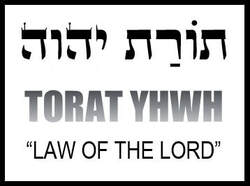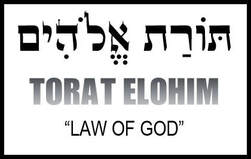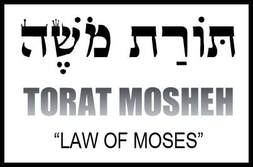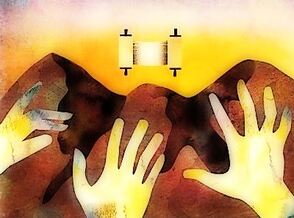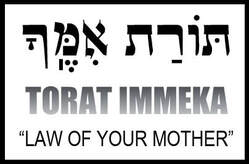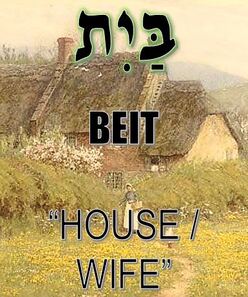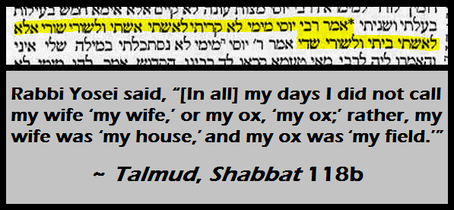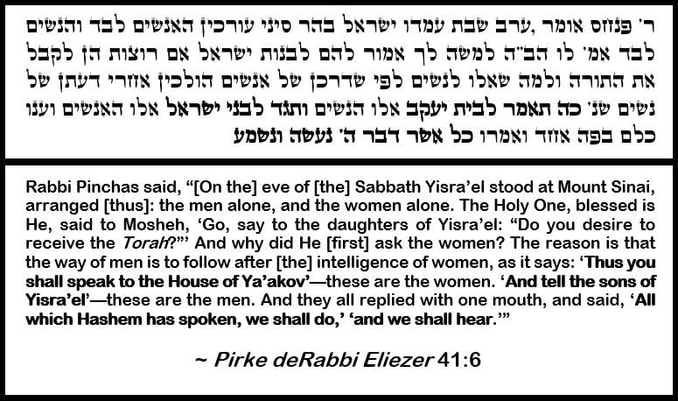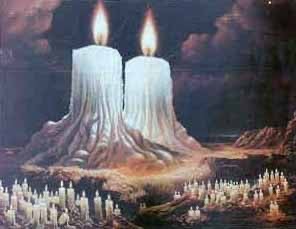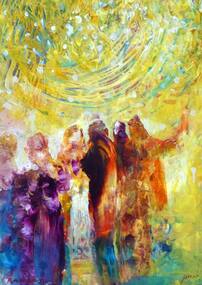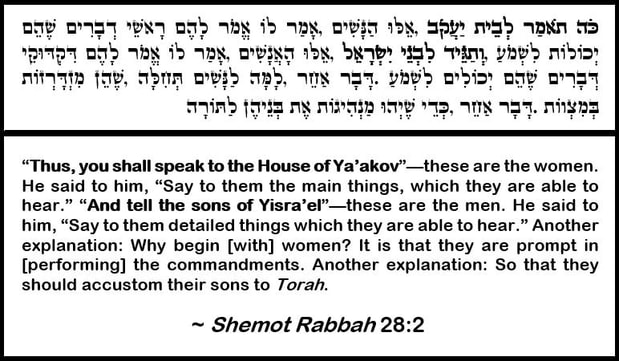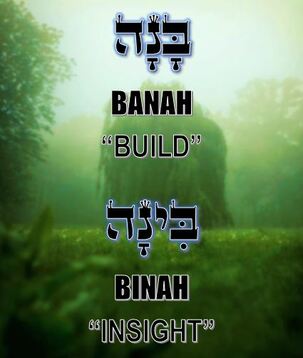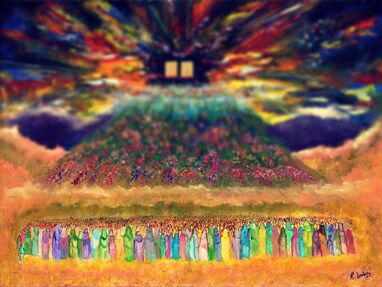YOUR MOTHER'S TORAH
by Jeremy Chance Springfield
6/1/2021
Scripture’s wisest man was a prolific writer whose attention touched on matters spiritual and mundane. From the wandering of a life framed in toil, all the way to the supernal truths held in the Word, King Solomon, the son of Bathsheba and heir to the Davidic dynasty set his focus on discovering the nexus of the sacred and the profane in a world where they were so often perceived as distinct and untouching. He sought in his wisdom to see how it all connected, to find that thread of continuity that would unite all men everywhere into a harmonious purpose.
The ultimate conclusion from his far-reaching endeavors of understanding the big picture was to address the necessity for man to live a life framed in the Word of the Holy One—a truth he recorded for us in Ecclesiastes 12:13.
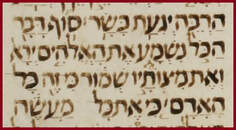
The end [of the] matter: the entirety is heard. Elohim must be revered, and His commandments must be guarded, for this [applies to] every man.
It all boils down to living in the context of the Creator’s will. This is the way all mankind can be in one accord. And as simplistic as it may seem, it makes complete sense when you think about it.
This is His world.
We are His people.
He gave His people His Word—the Torah—to follow.
That Word is referred to by a few titles throughout the text of Scripture. The most common and the most personal expressions by which it is referred to are three-fold:
This is His world.
We are His people.
He gave His people His Word—the Torah—to follow.
That Word is referred to by a few titles throughout the text of Scripture. The most common and the most personal expressions by which it is referred to are three-fold:
"Law of the LORD," "Law of God," and "Law of Moses."
The Hebrew text of Scripture uses these three expressions repeatedly to refer to the Torah. The rendering of TORAT is merely a grammatical feature signifying “Torah of…”
Therefore:
TORAT YHWH
Scripture refers to the Torah as belonging to YHWH—using the divine name of the Creator to show that it has come straight from the transcendent essence of the Holy One. It is representative of His character first and foremost.
TORAT ELOHIM
Scripture refers to the Torah as belonging to the Deity Himself—the supernatural Presence of the Creator in this natural world entails a law to which His followers must adhere in this created world.
TORAT MOSHEH
Scripture refers to the Torah as that delivered to us by the faithful servant of the Creator—Moses, thus giving us a verifiable tradition and chain of transmission which we are to recognize and follow.
In King Solomon’s reckoning of the wisdom so graciously given him, he concluded that man must follow the commandments of the Torah, for in the Torah lay the revelation of the Creator's will for mankind. There is nothing higher a human can seek than to align with the will of the Holy One. Performance of that will as it is expressed through the Torah unifies all people to the highest purpose possible.
And yet, King Solomon—in wisdom unparalleled—also twice added to the above three designations of the Torah a fourth one that ultimately displays the unity of the heavenly and the earthly. In the book of Proverbs, Solomon referred to the Torah with a brand-new epithet:

You must hear, my son, the discipline of your father, and do not cast off [the] Torah of your mother. ~ Proverbs 1:8

You must guard, my son, [the] commandment of your father, and do not cast off [the] Torah of your mother.
~ Proverbs 6:20
~ Proverbs 6:20
The Torah’s title given by Solomon in the Hebrew is TORAT IMMEKA “Torah of your mother” / "Your mother's Torah." One could also refer to it as "Law of your mother."
This title of the Torah in the Hebrew Scriptures is one that deserves attention, because in it we will be able to perceive the union of all things, which Solomon sought.
To be honest, however, it does raise some questions.
Why would Solomon specify that the Torah is that “of your mother?” The text in both verses includes the mention of one’s father. However, it very pointedly does not connect the Torah to the father! Rather, the verses use two different terms: MUSAR “discipline” and MITZVAT “commandment of” to describe what must be simultaneously “heard” and “guarded” concerning one’s father. The choice of such wording emphasizes more a heeding of the instruction a father gives, and not distinctly the authoritative Torah itself. In fact, in no place in Scripture is the Torah ever referred to as the “Torah of your father.” Rather, when it comes to the Torah being linked to a personal, individualized being, the text tells us that it is TORAT YHWH, TORAT ELOHIM, TORAT MOSHEH, and TORAT IMMEKA!
It thus begs the question: why specify “your mother’s Torah?”
To be honest, however, it does raise some questions.
Why would Solomon specify that the Torah is that “of your mother?” The text in both verses includes the mention of one’s father. However, it very pointedly does not connect the Torah to the father! Rather, the verses use two different terms: MUSAR “discipline” and MITZVAT “commandment of” to describe what must be simultaneously “heard” and “guarded” concerning one’s father. The choice of such wording emphasizes more a heeding of the instruction a father gives, and not distinctly the authoritative Torah itself. In fact, in no place in Scripture is the Torah ever referred to as the “Torah of your father.” Rather, when it comes to the Torah being linked to a personal, individualized being, the text tells us that it is TORAT YHWH, TORAT ELOHIM, TORAT MOSHEH, and TORAT IMMEKA!
It thus begs the question: why specify “your mother’s Torah?”
The answer is actually found within the text of the Torah itself and helps us to appreciate the insight with which Solomon was understanding Scripture. In Exodus 19, we find the people of Israel arriving at Mount Sinai and preparing to receive the Torah from the Creator. In verses 3-8 lay the context for the answer.
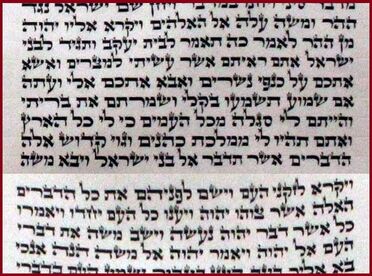
3 And Mosheh ascended unto Elohim, and YHWH called to him from the mountain, saying, “Thus you shall say to [the] House of Ya’akov, and shall tell [the] sons of Yisra’el:
4 ‘You have seen that which I did to Mitzrayim, and [how] I lifted you upon wings of eagles and brought you unto Myself.
5 And now, if you shall certainly hear My voice, and you shall guard My covenant, then you shall be to Me a treasure more than all the peoples—for Mine is all the earth.
6 And you shall be to Me a kingdom of priests, and a holy nation.’ These are the words which you shall speak unto the sons of Yisra’el.”
7 And Mosheh came and called to the elders of the people and set before them all these words which YHWH had commanded him.
8 And all the people, they replied [in] unison, and they said, “All which YHWH has said we shall do!” And Mosheh returned the words of the people to YHWH.
4 ‘You have seen that which I did to Mitzrayim, and [how] I lifted you upon wings of eagles and brought you unto Myself.
5 And now, if you shall certainly hear My voice, and you shall guard My covenant, then you shall be to Me a treasure more than all the peoples—for Mine is all the earth.
6 And you shall be to Me a kingdom of priests, and a holy nation.’ These are the words which you shall speak unto the sons of Yisra’el.”
7 And Mosheh came and called to the elders of the people and set before them all these words which YHWH had commanded him.
8 And all the people, they replied [in] unison, and they said, “All which YHWH has said we shall do!” And Mosheh returned the words of the people to YHWH.
Moses was commanded to bring the proposition of the Torah covenant before the people of Israel. If they were willing, they would become the specially chosen people of the Creator of the universe! The text tells us that Moses was to “speak” and “tell” two distinct groups of the people present at the mountain: “the house of Ya’akov” and “the sons of Yisra’el.”
Herein we shall see the insight that Solomon surely perceived!
The Hebrew word for “house” is BEIT. This is by far its most popular translation throughout the Word. However, it does possess alternative meanings, depending on the context of the passage in which it appears. One of those alternative meanings is that it is also a euphemism for “wife.”
Herein we shall see the insight that Solomon surely perceived!
The Hebrew word for “house” is BEIT. This is by far its most popular translation throughout the Word. However, it does possess alternative meanings, depending on the context of the passage in which it appears. One of those alternative meanings is that it is also a euphemism for “wife.”
This can be seen as a consistent Jewish perspective in several places in the Talmud, such as in tractate Shabbat 118b, provided below as an example, and also in passages like Gittin 52a, and Yoma 13a [I also discuss this factor as it bears significantly upon a Scriptural passage from the book of Esther in my study: MASHIACH BAT AVICHAYIL].
When we recognize what the text is thus saying, it causes the unique wording in Exodus 19:3 to be understood in a manner differently than normal, and yet one that makes total sense: Moses was to “speak” to one group—first the BEIT “house” / “wives” of Jacob, and then “tell” the other group—the BNEI “sons” / “men” of Israel.
We thus see that the covenant of Torah was introduced first to the women / wives of Israel!
This notion is also preserved in the ancient Jewish text of Pirke deRabbi Eliezer 41:6.
We thus see that the covenant of Torah was introduced first to the women / wives of Israel!
This notion is also preserved in the ancient Jewish text of Pirke deRabbi Eliezer 41:6.
This text elaborates on the situation by quoting Exodus 19:3 (and 24:7 as an added emphasis at the very end). We are told that Moses spoke to the women distinctly first and only afterwards the men, meaning that although they were together, he made sure they were separated—based on the initial instruction he was given in Exodus 19:3.
This also explains why he clarified the need for them to be separated with the instructions he soon after provides in Exodus 19:15 shown below, where he basically repeats the instructions given to him by the Most High in verses 10-13—instructions which did not include separation of males and females—yet is a detail he includes when he relays the message he was ordered to give them. We thus can see Moses did not add to the instruction, but rightly interpreted it!

And he said to the people, “You must prepare for three days: you shall not approach unto a woman.”
Moses understood from that initial direction to speak to the "House of Jacob" as well as the "sons of Israel" that the Creator was making a distinction and thus a separation between the two genders at Mount Sinai, and his later wording maintained that distinction.
These details in the Scriptural text only make sense when we rightly interpret the phraseology preserved in the command Moses was given back in Exodus 19:3—Moses was to offer the Torah to the women of Israel first!
These details in the Scriptural text only make sense when we rightly interpret the phraseology preserved in the command Moses was given back in Exodus 19:3—Moses was to offer the Torah to the women of Israel first!
Notice also that the above quote from Pirke deRabbi Eliezar asserts that the women were given the opportunity to accept the Torah first before the men due to the propensity for man to follow after the intelligence / reasoning of women. This explanation is borne out from the text of Scripture itself, as we read in Genesis 3:6.

And the woman saw that the tree was good to eat, and that it was pleasant to the eyes, and the tree was desirable to make one intelligent. Then she took from its fruit and ate, and gave even to her husband with her, and he ate.
We see that Adam followed the reasoning of Eve and ate the fruit she rightly perceived to be wholesome (we must distinguish that the fruit was not inherently evil, as the text of Scripture does not ever correct her assessment of the tree and its fruit—but the consuming of it is what was a clear divine prohibition). The man was willing to accept her righteous assessment of the fruit’s spiritual value even though he had distinctly been told they were not to eat the fruit. Therefore, it is logical that if the women in their insight were the first to accept the holy covenant of Torah, the men would follow their wise example.
Another ancient Jewish text known as Shemot Rabbah refers to the insight that the women of Israel were the first to receive the offer to enter into the covenant of Torah, and then seeks to explain for us more fully why that was the case.
In this similar account of the events at Sinai, the explanation for why the women were first introduced to the Torah instead of the men is further presented:
(1) Women are quicker to obey the commandments than men.
(2) It was so that the mothers would teach the Torah they received first to their own sons.
The reality of this tendency for brisk and steadfast obedience is seen at the beginning of the Exodus story in 1:15-21.
(1) Women are quicker to obey the commandments than men.
(2) It was so that the mothers would teach the Torah they received first to their own sons.
The reality of this tendency for brisk and steadfast obedience is seen at the beginning of the Exodus story in 1:15-21.
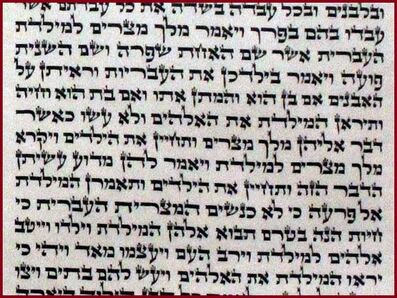
15 And the King of Mitzrayim spoke to the Hebrew midwives—one whose name was Shifrah, and [the] name of the second [being] Puah,
16 and he said, “When you do the birthing of the Hebrew women, and see them upon the [birthing]-stones, if he is a son, then you shall kill him, and if she is a daughter, then she lives.”
17 But the midwives feared Elohim, and they did not do as according to the word of the King of Mitzrayim unto them, but they let live the male babies.
18 And the King of Mitzrayim called to the midwives, and said to them, “For what reason have you done this thing? And you have let live the male babies!”
19 And the midwives said to Paroh, “Because the Mitzrayim women are not as the Hebrew women, for they are vivacious! Before the midwives come unto them, they deliver!”
20 And thus Elohim was pleased with the midwives, and the people multiplied, and became very numerous.
21 And it came to be, because the midwives feared Elohim, that he made for them houses.
16 and he said, “When you do the birthing of the Hebrew women, and see them upon the [birthing]-stones, if he is a son, then you shall kill him, and if she is a daughter, then she lives.”
17 But the midwives feared Elohim, and they did not do as according to the word of the King of Mitzrayim unto them, but they let live the male babies.
18 And the King of Mitzrayim called to the midwives, and said to them, “For what reason have you done this thing? And you have let live the male babies!”
19 And the midwives said to Paroh, “Because the Mitzrayim women are not as the Hebrew women, for they are vivacious! Before the midwives come unto them, they deliver!”
20 And thus Elohim was pleased with the midwives, and the people multiplied, and became very numerous.
21 And it came to be, because the midwives feared Elohim, that he made for them houses.
The reward for their readiness to obey the Creator rather than Pharaoh was that He made for them “houses.” Precisely what these “houses” entailed is not elaborated upon, but it does take on a new potential light when we understand that the word BEIT “house” can also mean “wife.” Perhaps the text is telling us that due to their hasty obedience, they were married off to husbands and thus merited to be the first to receive the Torah at Sinai?
The second explanation given above tells us that they would accustom their sons to learning the Torah. This takes us back to the text of Proverbs 6:20, where the Torah is referred to as “the Torah of your mother.” If we continue to read in that passage, the concept of what is being instructed by the mother to the child is clearly intended to have been understood as the inspired Torah. Verses 21-22 show this detail.
The second explanation given above tells us that they would accustom their sons to learning the Torah. This takes us back to the text of Proverbs 6:20, where the Torah is referred to as “the Torah of your mother.” If we continue to read in that passage, the concept of what is being instructed by the mother to the child is clearly intended to have been understood as the inspired Torah. Verses 21-22 show this detail.

21 You must bind them over your heart continually; you must tie them over your neck.
22 In your walking it shall guide you; in your reclining it shall watch over you; and in your waking it shall be your meditation.
22 In your walking it shall guide you; in your reclining it shall watch over you; and in your waking it shall be your meditation.
In particular, the content of what is being taught in these two verses from Proverbs is found in Deuteronomy 6, known popularly as the Shema. It is here paralleled specifically in Deuteronomy 6:6-8.

6 And these words which I command you today shall be over your heart,
7 and you shall impress them to your sons, and speak of them in your sitting in your home, and in your walking in the way, and in your reclining, and in your rising,
8 And you shall bind them for a sign over your hand, and they shall be for leather trinkets between your eyes.
7 and you shall impress them to your sons, and speak of them in your sitting in your home, and in your walking in the way, and in your reclining, and in your rising,
8 And you shall bind them for a sign over your hand, and they shall be for leather trinkets between your eyes.
As the reader can clearly see from the comparison of the two passages, mention is made between them of such imagery as “over your heart,” “binding,” “walking,” “reclining,” and “waking” / “rising.” The words of King Solomon were thus obviously referring to the mother’s emphasized teaching of the Torah as it is preserved for us in the Shema of Deuteronomy 6!
In these matters we can see that the women were offered the Torah first due to their special position and merit before the Creator. The Torah is thus able to rightly be called “the Torah of your mother” to highlight the significance the woman of faith plays in the molding and shaping of the Holy One’s people.
In these matters we can see that the women were offered the Torah first due to their special position and merit before the Creator. The Torah is thus able to rightly be called “the Torah of your mother” to highlight the significance the woman of faith plays in the molding and shaping of the Holy One’s people.
As the study prepares to conclude, let us now remember: King Solomon spanned his seeking for insight from the loftiest to the lowest, from the heavenly to the earthly, from the spiritual to the carnal, in order to identify that underlying unifying principle pertinent to all lives. He ended up stating it was the performance of the Torah that applied to everyone.
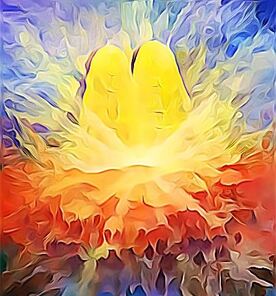
The Torah of YHWH—the transcendent expression of the Maker of all reality.
The Torah of Elohim—the supernatural immanent in natural laws.
The Torah of Moses—the trustworthy servant relating the Word to His people.
The Torah of your mother—the commandments made real by those who live them.
The Torah of Elohim—the supernatural immanent in natural laws.
The Torah of Moses—the trustworthy servant relating the Word to His people.
The Torah of your mother—the commandments made real by those who live them.
Solomon surely perceived the connection of the Torah to the women of faith in order for him to have concluded it was proper to include the title TORAT IMMEKA “Torah of your mother” as a valid designation to add to the existing three. In his attempt to make sense of life and the purpose of humanity, he had on the one hand the links from the heavens to the earth in those original three titles of TORAT YHWH, TORAT ELOHIM, and TORAT MOSHEH. But the vital connection from the earth to the heavens was missing.
That link was hidden in the insight of properly understanding the meaning of Exodus 19:3 and the Torah being given first to the women of faith who stood at Sinai. For man was made special from the dust by the unique attention of the Holy One and breathed-into by His very own Spirit, as we see in Genesis 2:7.
That link was hidden in the insight of properly understanding the meaning of Exodus 19:3 and the Torah being given first to the women of faith who stood at Sinai. For man was made special from the dust by the unique attention of the Holy One and breathed-into by His very own Spirit, as we see in Genesis 2:7.

And YHWH Elohim formed the man [of] dust from the ground, and He breathed into his nostrils breath [of] life, and the man became a living soul.
Woman, in a strange detail, was made from the man himself. Therefore, in a very profound way, woman is uniquely a creation of flesh, as Genesis 2:21-23 shows, and not of earth.
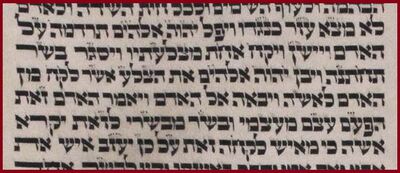
21 And YHWH Elohim made a deep sleep fall over the man, and he slumbered. And He took one [part] from his side and closed up his flesh.
22 And the side [part] which YHWH Elohim took from the man He fashioned into a woman, and He brought her to the man.
23 And the man said, “This is now bone from my bone, and flesh from my flesh. This shall be called ‘woman,’ for this was taken from man.”
22 And the side [part] which YHWH Elohim took from the man He fashioned into a woman, and He brought her to the man.
23 And the man said, “This is now bone from my bone, and flesh from my flesh. This shall be called ‘woman,’ for this was taken from man.”
Exactly what occurred at her creation is not written down for us, but there is no direct mention of a breathing-into her as happened to Adam. Unlike Adam who was formed from the earth and then required a second, special act by the Creator to become a spiritual being, woman was taken from the already-inspirited nature of man. She thus rose from a unique inherently spiritual-and-physical state! Woman's original starting-point of existence was already naturally raised up as opposed to the nature of man, which needed something further done to it in order to get to that more elevated point. In a manner of speaking, woman is thus more closely representative of the spiritual within physical reality than even man himself!
The Hebrew of Genesis 2:22 above also provides a potential insight into the inherent spiritual nature of woman. The word used to refer to the “building” / “fashioning” of the woman is from the root of the Hebrew term BANAH “to construct / build.” This word was not used when the text discussed the creation of the man. It is exclusively reserved for the creation of the woman. The reason this is significant is that it has been suggested the root hints also at the Hebrew term BINAH “understanding / insight.” In this case it would imply that the Creator took from the man and made BINAH "understanding" the underlying concept of the woman, giving her a unique spiritual insight.
It is thus entirely fitting that it was to woman first that the Torah was presented at Sinai due to her readiness to seek the spiritual and her dedication to teaching it to her sons. Women inherently show in their nature a creation of the physical that is yet turned profoundly to do the things of the spiritual. Whereas Adam in the Garden was made with the special breathing-in of the Spirit of the Holy One, he turned to the flesh to disobey his calling, for all he saw in the fruit was the prohibition of eating it. Woman, on the other hand, with eyes of insight, saw in the flesh of the fruit the spiritual value (even though the eating of it was indeed prohibited at that time), and was eager to partake of that spiritual aspect—showing the inherent connection and draw to the spiritual side of things that exists uniquely in the woman.
Thus, we can appreciate that in the title of the Torah that King Solomon added: TORAT IMMEKA “Torah of your mother,” is that piece of the unifying puzzle he sought to see which applies to all humanity. Woman was honored by the Holy One to be included among the three lofty titles Torah gives His Word in the wording of a fourth one: “Torah of your mother.”
In the giving of the Torah first to the women is the secret of the unification of the things of the heavens and the things of the earth! With this insight we are able to affirm with the wisdom of King Solomon that which he conclusively stated in Ecclesiastes 12:13.
In the giving of the Torah first to the women is the secret of the unification of the things of the heavens and the things of the earth! With this insight we are able to affirm with the wisdom of King Solomon that which he conclusively stated in Ecclesiastes 12:13.
The end [of the] matter: the entirety is heard. Elohim must be revered, and His commandments must be guarded, for this [applies to] every man.
All study contents Copyright Jeremy Chance Springfield, except for graphics and images, which are Copyright their respective creators.
